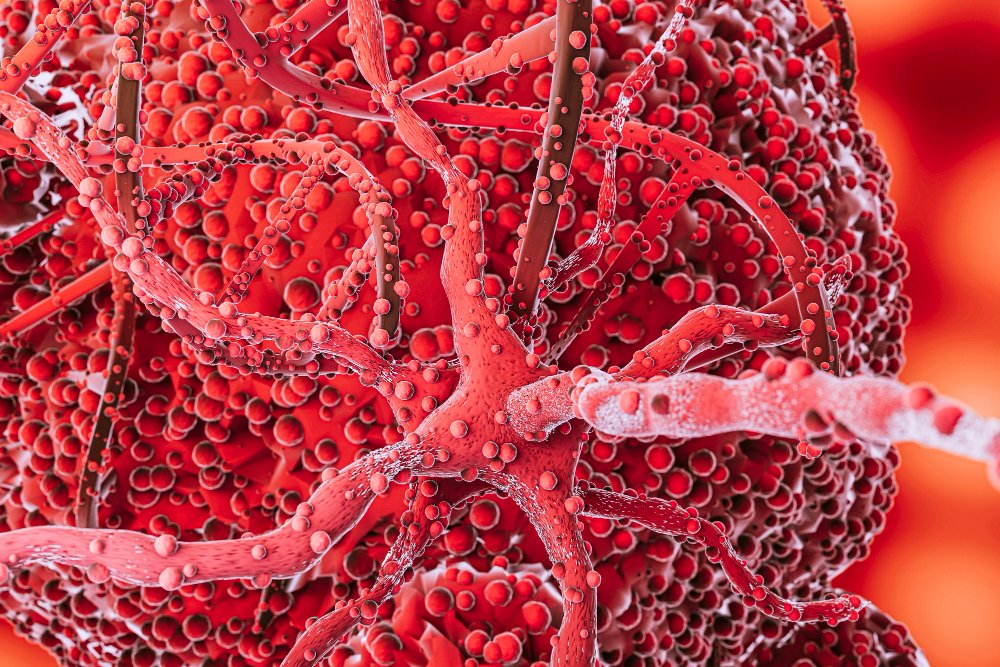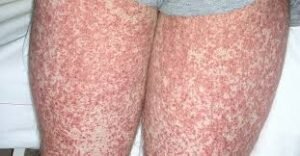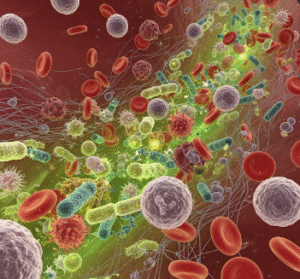Overview
Multiple Myeloma (MM) is a type of blood cancer that affects plasma cells in the bone marrow, leading to bone damage, anemia, kidney problems, and immune dysfunction. In Korea, awareness of MM has increased, and advanced diagnostic and treatment facilities are available at major hospitals such as Seoul National University Hospital, Samsung Medical Center, and Asan Medical Center. Early detection and modern therapies have significantly improved patient outcomes.
What is Multiple Myeloma?
Multiple Myeloma is a malignant disorder of plasma cells, a type of white blood cell responsible for producing antibodies. In MM, abnormal plasma cells multiply uncontrollably, crowding out healthy blood cells and producing abnormal antibodies (M-protein), which can damage organs. MM primarily affects adults over 50 years of age, with men slightly more commonly affected than women.
Symptoms
- Bone pain, especially in the spine, ribs, or pelvis
- Fatigue and weakness due to anemia
- Frequent infections from immune suppression
- High calcium levels (hypercalcemia) causing nausea, constipation, or confusion
- Kidney dysfunction
- Unexplained weight loss
- Easy bruising or bleeding
Causes
- Exact cause unknown
- Genetic abnormalities in plasma cells
- Age-related risk (older adults more susceptible)
- Environmental exposures such as radiation or certain chemicals may contribute
- Family history of blood cancers in rare cases
Risk Factors
- Age over 50 years
- Male gender
- Family history of multiple myeloma or other hematologic cancers
- Exposure to certain chemicals or radiation
- Obesity or chronic immune system disorders
Complications
- Bone fractures and skeletal damage
- Kidney failure due to abnormal antibody proteins
- Infections from weakened immunity
- Hypercalcemia-related complications
- Anemia and bleeding disorders
- Reduced quality of life and shortened life expectancy if untreated
Prevention
- No guaranteed prevention, but risk can be reduced by:
- Maintaining a healthy weight and lifestyle
- Avoiding unnecessary chemical exposures
- Regular medical checkups for individuals at risk
- Early screening if there is a family history of blood cancers
Treatment Options in Korea
Korea provides advanced treatment options for Multiple Myeloma, combining chemotherapy, targeted therapy, stem cell transplantation, and supportive care.
- Diagnosis
- Blood tests to detect M-protein and anemia
- Urine tests for Bence Jones proteins
- Bone marrow biopsy to confirm plasma cell proliferation
- Imaging (X-ray, MRI, PET/CT) to assess bone damage
- Medical Treatments
- Chemotherapy to reduce abnormal plasma cells
- Targeted therapies (e.g., proteasome inhibitors, immunomodulatory drugs)
- Monoclonal antibody therapy to attack cancer cells
- Corticosteroids to control inflammation and tumor activity
- Advanced Treatments
- Autologous stem cell transplantation for eligible patients
- Radiation therapy for localized bone lesions
- Clinical trials for newer therapies, available at major Korean hospitals
- Supportive Care
- Pain management and bone-strengthening medications (bisphosphonates)
- Infection prevention through vaccines and antibiotics
- Nutritional support and rehabilitation
- Top Hospitals in Korea
- Seoul National University Hospital – Hematology and stem cell transplantation programs
- Asan Medical Center – Advanced chemotherapy and targeted therapy
- Samsung Medical Center – Comprehensive myeloma care and clinical trials
- Yonsei Severance Hospital – Multidisciplinary care including supportive and palliative services
- Long-Term Follow-Up
- Regular blood and imaging tests to monitor remission and relapse
- Ongoing management of complications such as bone and kidney damage
- Psychological support and counseling for patients and families













